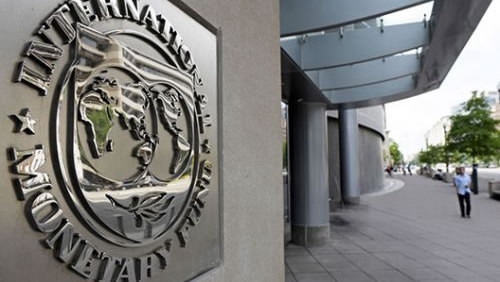
World
11:00, 26-Sep-2017
IMF: Inequality and low wages weaken global growth
CGTN

Senior IMF official said Monday that weak wage growth and rising inequality in advanced economies, such as the US, is holding back global growth.
Tao Zhang, the International Monetary Fund's deputy managing director, said the fund's economic growth forecasts due out next month, will show little change in the still relatively slow global recovery.
"Nearly a decade after the global financial crisis, the global economy is getting better," Zhang told a gathering of business economists in Cleveland, Ohio.
In July, the IMF forecast global economic growth of 3.5 percent this year, up from 3.2 percent last year, and accelerating to 3.6 percent in 2018.
While this is "good news," a 3.5 percent global growth rate is weak in historical terms, he said.
Zhang pointed to slowing productivity growth, income inequality and low wage growth and weak inflation as culprits.
The IMF forecast US growth of 2.1 percent this year and in 2018, up from 1.6 percent in 2016. While that would constitute the second-longest expansion since 1850, it is well below President Donald Trump's goal of three percent.
More than half of US households now have lower incomes, when accounting for inflation, than they did in 2000, Zhang said.
And around two-thirds of households leaving the middle-class are falling into the bottom segment of income distribution, earning less than half the US median income, he added.
Income inequality is weighing on overall global consumption, reducing it by about 3.5 percent over the last 15 years, he said.
"This represents an important headwind to aggregate demand," suggesting these developments have driven the recent rise of protectionism and nationalism in Western countries.
"I know all of us are aware of the social and political ramifications that have accompanied these shifts in the level and distribution of household income."
Zhang called for targeted social assistance programs, increased education and job training, a higher minimum wage, support for child care and paid family leave, as well as greater tax assistance to the poor as remedies for the concentration of income.
IMF chief Christine Lagarde last week warned that the US will fall short of its ambitious economic growth goals unless it can accelerate promised policy changes, including tax reform, and has long argued in favor of the kinds of policies Zhang called for.
Source(s): AFP

SITEMAP
Copyright © 2018 CGTN. Beijing ICP prepared NO.16065310-3
Copyright © 2018 CGTN. Beijing ICP prepared NO.16065310-3